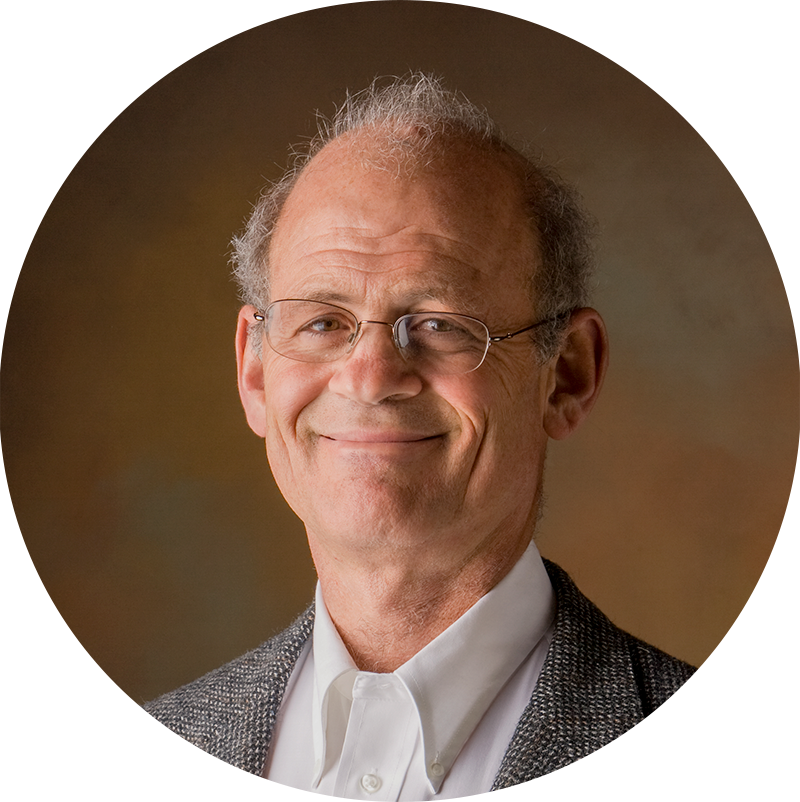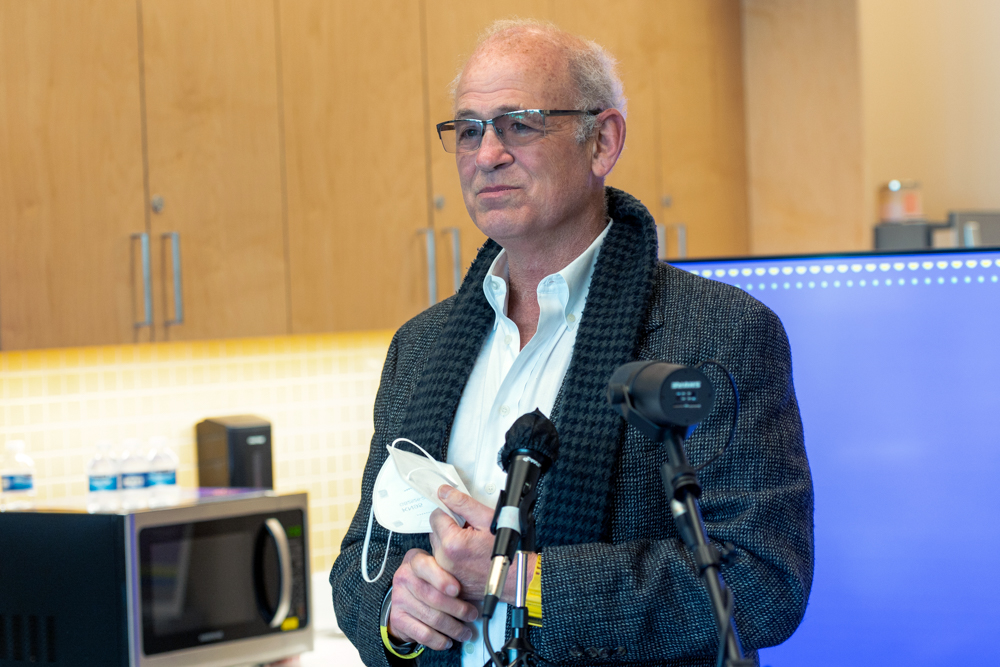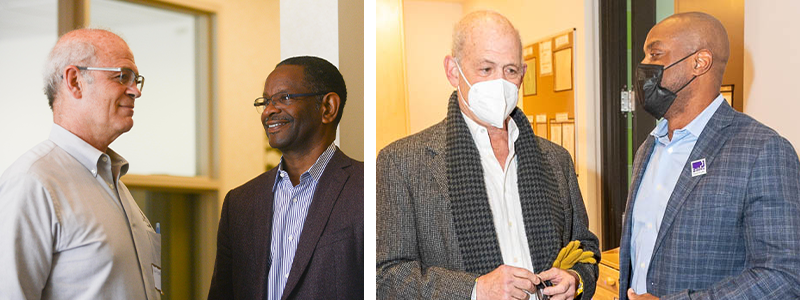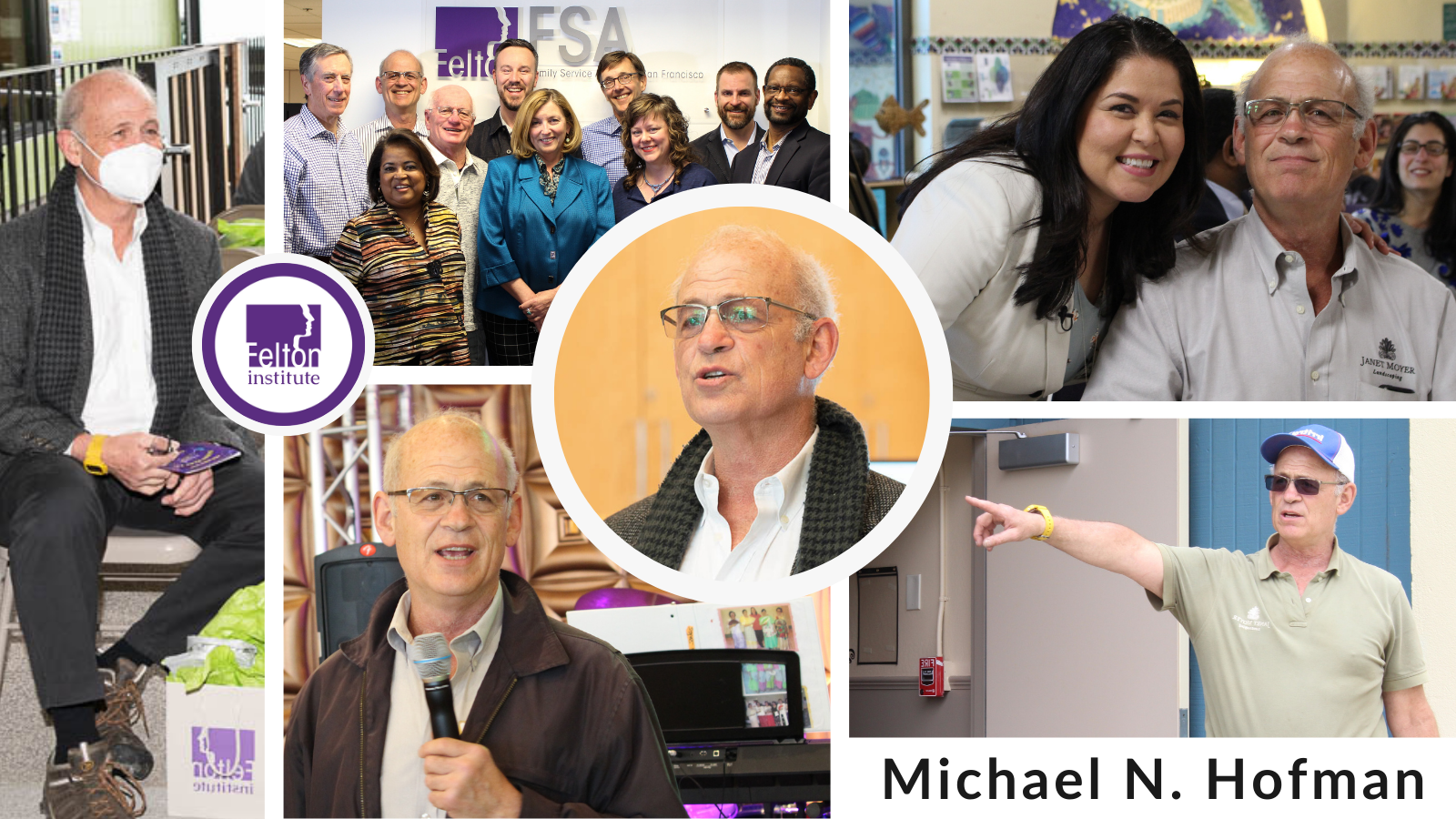“If you want something, you have to give it away,” Board Secretary and Finance Committee Chair Michael N. Hofman asserts. He was given this invaluable insight by a fellow board member, explaining “if you want fulfillment, or success, or security, then you have to give it away.” Over the course of his thirty-four-year tenure at Felton Institute, Mr. Hofman has done just that by giving his time, support, and expertise to the hundred- and thirty-year-old institution. As he retires from his role as Board Member, he reflects on his decades-long commitment to Felton’s vision and service to the community.

Mr. Hofman, who began as a volunteer at Felton Institute in the late 1980s, joined the Board in 1992. He brought his expertise in business and finances to his role. He holds a master’s degree in health administration and acted as Executive Vice President at Janet Moyer Landscaping, his wife’s company, that was founded in 1990. Together they built their business into a successful and profitable $3 million dollar enterprise. Mr. Hofman elucidates, “we developed really good practices that we used over and over again. And I’m a firm believer in that.” In addition to his role as executive vice president, he has held various professional licenses throughout his career that include contractor’s license, pest control license, certified irrigation designer, and certified arborist. While working in the public sector, Mr. Hofman, gave his time and expertise to Felton Institute, making significant contributions to the organization.
Mr. Hofman has witnessed, and been part of, many major changes at Felton over the decades. He’s had the privilege of seeing the expansion of programs as well as the geographic reach of these services across the Bay Area. What started out as a severely limited budget over thirty years ago, now boasts programs supporting and empowering community members from all stages of life, from infants to the elderly. Mr. Hofman says of these accomplishments that Felton has “gained a great deal of maturity in its vision, its operating methodologies and its scope and its diversity.” And it was this vision and diversity that began with Felton’s early leader, Dr. Katharine “Kitty” Felton.
Known as the “Conscience of the City” Kitty Felton was a social worker who lobbied and advocated for children, increased social services, education, and mental health programs. Inspired by her work and ideals, Mr. Hofman calls Kitty Felton “an astounding person.” He continues, “if there’s anyone in history I’d like to go back and meet, I’d like to go back and meet her.” She established a home for orphans and conducted research about the high mortality rates they suffered, incorporating best practices. Hofman sees this legacy continued in the present day, “Felton Institute recognizes the importance of best practices and that is a really good memorial to her.”
One such example is the Solmar Learning Center (SLC), Felton’s fifth early care and education site for children from low-income families and those who are at risk of academic challenges. “I often have said,” Mr. Hofman begins, “that the programs should not be limited to those who cannot afford to pay for them.”
Earlier this year, Mr. Hofman spoke at the opening of the Solmar Learning Center. At one point he was overcome with emotion when he spoke about the importance of programs like these. “All the Board members understand the importance of investing in the future and as chair of the Finance Committee, I have attempted to bring investments in new facilities to the forefront of our conversations.” He states, that with programs like these it’s “so inspiring to see the organization multiply the excellence of its programs to different venues.” “We have future presidents in those kids,” he says with a smile.

In addition to the opening of Solmar Learning Center, Mr. Hofman, credits the people he worked with for making his time at Felton so rewarding. It’s been an “opportunity to meet some fantastic fellow board members, an opportunity to develop a relationship with a number of the staff.” Adding, “I’ll miss consulting with [CFO] Marvin Davis and [CEO] Al Gilbert about finances and the development of the organization.” He continues, “over the years, Marvin and I and Al, have developed a relationship where I respect them, and they respect me.”

Over his decades-long work with Felton, Mr. Hofman has seen the enormous progress the institution has made. “In the earlier days, the fact that Felton was not on a secure financial footing was really challenging.” He continues, “I think as Felton grows its financial footing, it’s getting stronger and stronger.” Adding, “I think the team is doing really a fabulous job of making progress.”
Reflecting on his experiences as Board Secretary and Finance Committee Chair, Mr. Hofman appreciates all that he’s gained from his work with Felton. “What little I’ve contributed to Felton over the years has been returned to me a hundred-fold,” he says, adding, “seeing the organization grow and prosper has been tremendous.”

About Felton Institute: Founded in 1889, Felton Institute responds to human needs by providing cutting edge, evidence-based mental health and social services that transform lives. Felton Institute is a tax-exempt organization registered 501(c)(3) nonprofit under EIN 94-1156530.
Offering more than 50 acclaimed and honored programs that address homelessness, mental health, prenatal, adolescent, adult, and senior needs, Felton Institute provides services in San Francisco, Alameda, San Mateo, Marin, and Monterey counties. Felton’s social services and programs utilize the latest scientific research, combining cultural sensitivity, deep respect for client and staff, and a commitment to social justice.
Felton is the oldest non-sectarian and nonprofit social services provider in the City and County of San Francisco. For over a century, Felton Institute has been at the forefront of social service innovation, pioneering new approaches to meet underserved populations’ emerging needs. At the heart of our work is the belief that individuals and families in crisis must have access to services and resources to help them build on their inherent strengths and develop self-sufficiency. www.felton.org